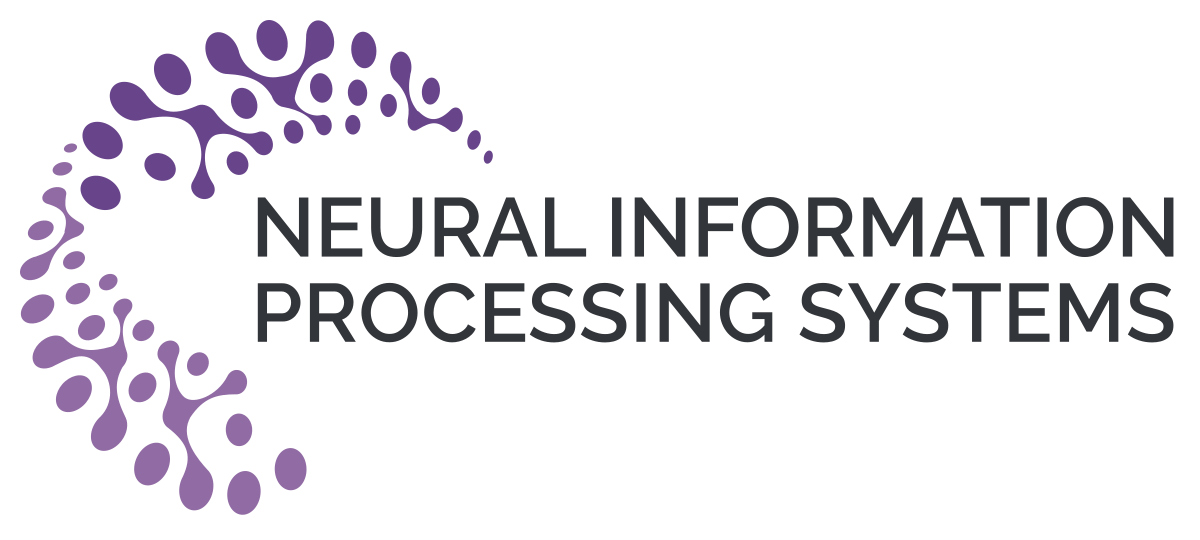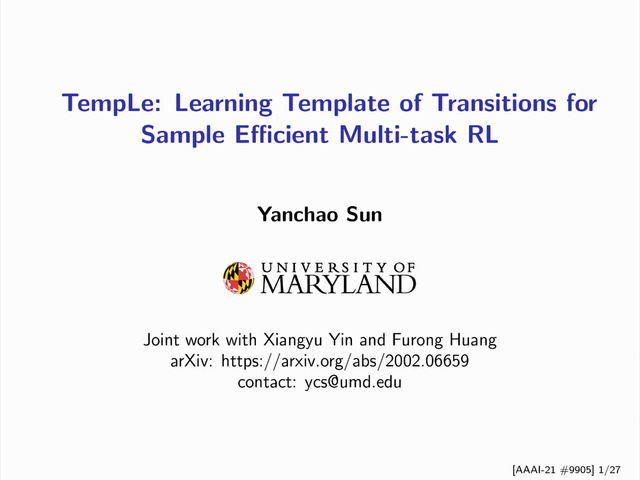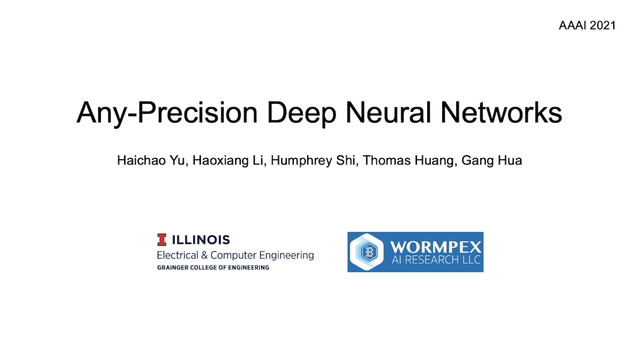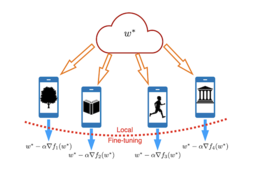Abstract:
Regularization and transfer learning are two popular techniques to enhance model generalization on unseen data, which is a fundamental problem of machine learning. Regularization techniques are versatile, as they are task- and architecture-agnostic, but they do not exploit a large amount of data available. Transfer learning methods learn to transfer knowledge from one domain to another, but may not generalize across tasks and architectures, and may introduce new training cost for adapting to the target task. To bridge the gap between the two, we propose a transferable perturbation, MetaPerturb, which is meta-learned to improve generalization performance on unseen data. MetaPerturb is implemented as a set-based lightweight network that is agnostic to the size and the order of the input, which is shared across the layers. Then, we propose a meta-learning framework, to jointly train the perturbation function over heterogeneous tasks in parallel. As MetaPerturb is a set-function trained over diverse distributions across layers and tasks, it can generalize to heterogeneous tasks and architectures. We validate the efficacy and generality of MetaPerturb trained on a specific source domain and architecture, by applying it to the training of diverse neural architectures on heterogeneous target datasets against various regularizers and fine-tuning. The results show that the networks trained with MetaPerturb significantly outperform the baselines on most of the tasks and architectures, with a negligible increase in the parameter size and no hyperparameters to tune.









































